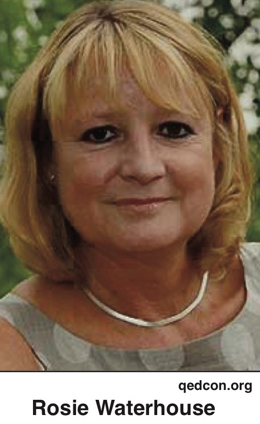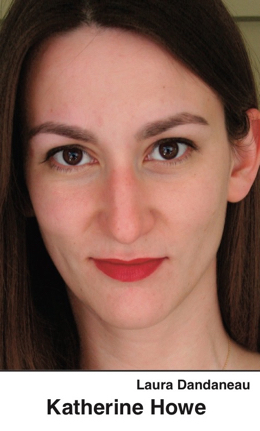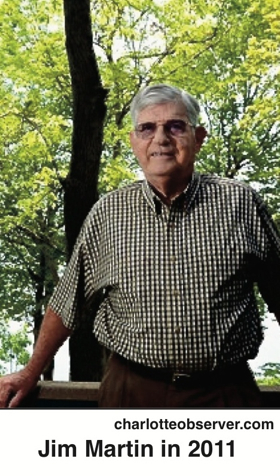Rascals case in brief
In the beginning, in 1989, more than 90 children at the Little Rascals Day Care Center in Edenton, North Carolina, accused a total of 20 adults with 429 instances of sexual abuse over a three-year period. It may have all begun with one parent’s complaint about punishment given her child.
Among the alleged perpetrators: the sheriff and mayor. But prosecutors would charge only Robin Byrum, Darlene Harris, Elizabeth “Betsy” Kelly, Robert “Bob” Kelly, Willard Scott Privott, Shelley Stone and Dawn Wilson – the Edenton 7.
Along with sodomy and beatings, allegations included a baby killed with a handgun, a child being hung upside down from a tree and being set on fire and countless other fantastic incidents involving spaceships, hot air balloons, pirate ships and trained sharks.
By the time prosecutors dropped the last charges in 1997, Little Rascals had become North Carolina’s longest and most costly criminal trial. Prosecutors kept defendants jailed in hopes at least one would turn against their supposed co-conspirators. Remarkably, none did. Another shameful record: Five defendants had to wait longer to face their accusers in court than anyone else in North Carolina history.
Between 1991 and 1997, Ofra Bikel produced three extraordinary episodes on the Little Rascals case for the PBS series “Frontline.” Although “Innocence Lost” did not deter prosecutors, it exposed their tactics and fostered nationwide skepticism and dismay.
With each passing year, the absurdity of the Little Rascals charges has become more obvious. But no admission of error has ever come from prosecutors, police, interviewers or parents. This site is devoted to the issues raised by this case.
On Facebook
Click for earlier Facebook posts archived on this site
Click to go to
Today’s random selection from the Little Rascals Day Care archives….
Click for earlier Facebook posts archived on this site
Click to go to
Today’s random selection from the Little Rascals Day Care archives….
A lack of reporters ‘sufficiently passionate to get at this story’?

thetennessean.com
Frank Daniels III
July 8, 2016
“As for an ‘investigative’ piece about the Kelly case that would get to the ‘truth,’ we will have to see if we have any staff members who are sufficiently passionate to get at this story….”
– From News & Observer executive editor Frank Daniels III’s reply (June 10, 1992) to a plea for coverage from Jane W. Duffield of the Committee to Support the Edenton Seven
Daniels’ predecessor, Claude Sitton, lamented later that “my greatest mistake (was) my failure as editor… to make sure we had a top-notch investigative reporter on the Little Rascals case.”
I’ve asked Daniels to share his own recollections of the paper’s coverage, but haven’t heard back.
![]()
View from UK: ‘Whole culture … has become hysterical’
 Jan. 3, 2015
Jan. 3, 2015
“Lurid tales of children being sexually abused, of animals being ritually slaughtered and babies being bred for sacrifice, in bizarre black magic ceremonies by cults of devil-worshipping Satanists first surfaced in America in the early 1980s. The allegations of what became known as Satanic ritual abuse soon spread to Britain, Australia and New Zealand in the late 1980s and early 1990s….
“As early as 1994 a UK government-funded investigation concluded there was no evidence Satanic ritual abuse existed. Yet despite the continuing absence of evidence, anywhere in the world, a minority of child care professionals including police officers and social workers, and adult psychotherapists, psychologists and psychiatrists persist in the belief that Satanic ritual abuse exists….”
– From a synopsis of remarks by Rosie Waterhouse, a journalist and academic who has been the foremost investigator of supposed “satanic ritual abuse” in Great Britain for the past 24 years
If my Google News feed is any measure, however anecdotal, such British claims may now outnumber those from the States. I asked Dr. Waterhouse to expound:
“There is a hard core of ‘believers’ who continue to spread the myth and very alarmingly seem to have influence among authorities and the media….
“The whole culture now about allegations of child sex abuse – from Satanic to dozens of police and official investigations and inquiries into non-Satanic ‘historic’ allegations, including against high-profile people including celebs and politicians – has become hysterical….
“Setting aside the Satanic abuse allegations – which I believe to be the most spurious, because as far as I am aware there has never been produced any physical, forensic, corroborating evidence, anywhere in the world – the historic non-Satanic allegations which have gone to trial have resulted in some convictions and some acquittals. Of other allegations which have not yet come to court, some may be true. Others I sense are the product of trawls for alleged survivors and witnesses to come forward, often with the prospect of compensation, and are false….
“The tidal wave of allegations is overwhelming. I really am depressed by it all.”
Day-care cases rooted in ‘sense of powerlessness’?
 Jan. 17, 2015
Jan. 17, 2015
Q: Do you have a better understanding of why people act the way they do in certain situations?
A: ….Whenever the safety of children is perceived to be in question, we run the risk of responding with emotion rather than reason. Certainly in Salem (where three of her ancestors were accused witches) that was the case. And look at the so-called “satanic ritual abuse” pre-school phenomenon in the early 1980s, which is now seen to have been a tremendous miscarriage of justice. Calls for moderation are dismissed with the assertion that the children have to come first — which, of course, they should.
“But it’s also tempting to read these experiences as expressive of a deeper anxiety about childrearing in an uncertain world, with no guarantees of a good outcome. I feel that it comes from a sense of powerlessness that can’t be expressed elsewhere….”
– From an interview with Katherine Howe, author of “Conversion,” a novel based on a mysterious 2012 outbreak of tics and seizures among teenage girls in upstate New York, in the Daily News of Batavia, New York (Aug. 23, 2014)
‘I was aware of the possibility of childish fantasy….’
 July 11, 2014
July 11, 2014
“…. As you might imagine, I had not had reason to think about the Little Rascals case until your email arrived. Yes, I was very interested in the case at the time, but had no role or authority to intervene. (See governor’s 1991 response to letter writers.) The arrests and charges were highly publicized, as were the proceedings of the trial, upon which the two accused were convicted. So, like most citizens, I felt a compulsion to follow the case, at least insofar as the news coverage.
“My recollection is that both the horrible accusations and the contrary indications of coached and imaginative testimony of the children were featured in the coverage…. Being very familiar with Arthur Miller’s brilliant drama, ‘The Crucible,’ I was aware of the possibility of childish fantasy passing as falsely condemning testimony. From a distance, most readers probably shared the concern, ‘What if it were true?’
“I do not recall whether the defense attorneys contacted my office in an appeal for clemency in 1991-1992. Had they done so, they would have been advised that my practice was to let the appellate courts complete their judicial review before considering clemency. This was complete in 1995 when the NC Supreme Court declined to review the finding by the Court of Appeals of trial error, at which time there would be no cause for Governor Hunt to intervene. I have great respect for the judgment and integrity of then Chief Justice Burleigh Mitchell, and that would settle the legal principles of the matter for me.
“I can only wonder what conclusion I might have reached had the appeal for clemency been properly before me. My approach in such cases was to meet separately with advocates on both sides, without restricting the nature or style of what they had to say. I would make my decision based on corroborated evidence and the trial record, without following its standards for disqualifying some evidence. I gave attention to two main standards: (a) whether the punishment was suited to the nature of the crime, and (b) whether there was doubt as to the guilt of the person convicted….
“I believe your cause is to persuade the Governor to issue a Pardon of Innocence for Bob Kelly and Dawn Wilson. It may be difficult to produce exculpatory evidence several decades after the events. You did not say whether Mr. Kelly and/or Ms. Wilson wish to return to that gauntlet, considering the degree to which they have restored their lives. If they do, it would my hope that Governor McCrory and his counsel would weigh the two guidelines cited above, although no Governor is bound in clemency matters by any precedent of his predecessors. While it can be difficult to prove a negative, it would help your cause if there were former accusers now in their thirties who have recanted the accusations of their childhood. Otherwise, the appellate finding of procedural error alone might not be sufficient.”
– From a letter from former Gov. Jim Martin responding to my question about his recollections of the Little Rascals Day Care case
As welcome as a gubernatorial pardon would be, my hopes for the Edenton Seven are more modest: a “statement of innocence” from the governor or attorney general similar to that given the defendants in the Duke lacrosse case.
If only the Little Rascals prosecutors had been as familiar with “The Crucible” as was the governor….











0 CommentsComment on Facebook